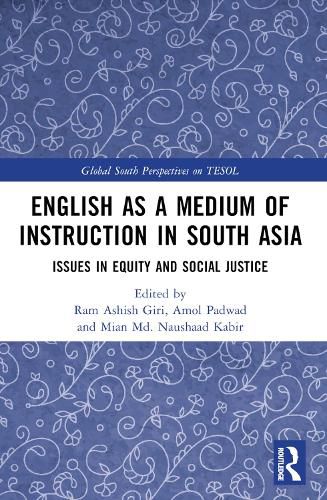Readings Newsletter
Become a Readings Member to make your shopping experience even easier.
Sign in or sign up for free!
You’re not far away from qualifying for FREE standard shipping within Australia
You’ve qualified for FREE standard shipping within Australia
The cart is loading…






This book examines the 'English mania phenomenon' and the complex circumstances of adopting English Medium Instruction (EMI) by South Asian education systems and the effect of an uneven distribution of resources on the already under-resourced countries in the region.
Chapters explore linguistic, social, and economic injustices by using an analytic-critical approach to examinations of the place, role, provisions, and practices of EMI in specific English language teaching (ELT) contexts. The book consequently advocates for the wholescale reform of a system, which, the authors argue, is unjust. Ultimately, the book explores socio-cultural, poststructuralist, and English linguistic imperialism theories to contribute a South Asian perspective on the controversy surrounding EMI and examine its role within a wider global discourse on equity and social justice.
Critically examining the spread of English in South Asia, this book will be of relevance to researchers, scholars, and postgraduate students in applied linguistics, language education, TESOL, and sociolinguistics.
$9.00 standard shipping within Australia
FREE standard shipping within Australia for orders over $100.00
Express & International shipping calculated at checkout
This book examines the 'English mania phenomenon' and the complex circumstances of adopting English Medium Instruction (EMI) by South Asian education systems and the effect of an uneven distribution of resources on the already under-resourced countries in the region.
Chapters explore linguistic, social, and economic injustices by using an analytic-critical approach to examinations of the place, role, provisions, and practices of EMI in specific English language teaching (ELT) contexts. The book consequently advocates for the wholescale reform of a system, which, the authors argue, is unjust. Ultimately, the book explores socio-cultural, poststructuralist, and English linguistic imperialism theories to contribute a South Asian perspective on the controversy surrounding EMI and examine its role within a wider global discourse on equity and social justice.
Critically examining the spread of English in South Asia, this book will be of relevance to researchers, scholars, and postgraduate students in applied linguistics, language education, TESOL, and sociolinguistics.